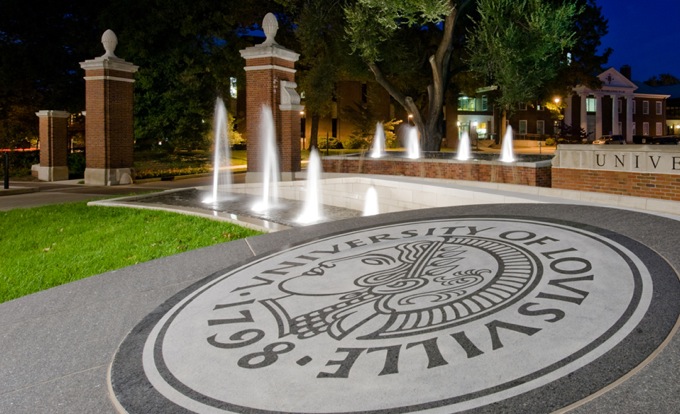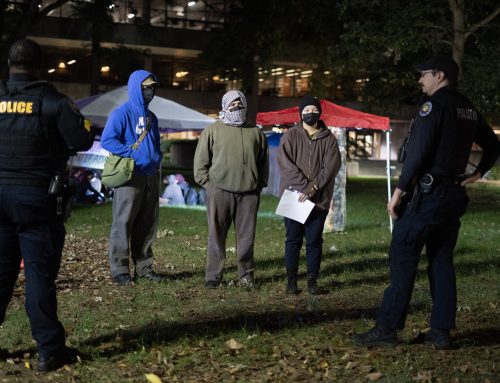By Matthew Keck —
The 2020 Grawemeyer Award winners were announced in early December 2019. There were a total of six winners this year, with two awardees co-winning one category. Every recipient received $100,000 and will be in Louisville to give talks about their achievements in April 2020.
Charles Grawemeyer, a U of L graduate and former seminary trustee, launched these awards in 1984 to honor the impact that a single idea can have on the world. There are five award categories: music, world order, psychology, education and religion.
Music Composition Award
Lei Liang, a music professor at the University of California, San Diego, received the 2020 music composition award. “A Thousand Mountains, a Million Streams,” was the piece that won Liang this award. This orchestral piece conveyed the threat posed by climate change and the opportunity it offers for redemption.
“The world we live in today is dangerous,” Liang said. “Our very existence is threatened by global warming, which is causing violent disruptions to the living things on our planet and being made worse by human irresponsibility.”
The piece is a half-hour long and broken into 15 different sections. It begins with dramatically hollow and haunting string sections accompanied by piercing aerophones, creating a dark reality. In the last section of the composition, XV, the piece begins with an imitation of a heartbeat, mimicked by the orchestra.
“When creating the work, I wanted to convey the importance of preserving our landscapes, both physically and spiritually, to sustain a place where we and our children can belong,” said Liang.
The Boston Orchestra Project commissioned this piece and it premiered in 2018 at Boston’s Jordan Hall. Liang has composed more than 100 works, which includes pieces that address other social issues such as human trafficking and gun violence.
World Order Award
Ken Conca, an American University international relations professor, received the 2020 Grawemeyer world order award. His ideas in his book, “An Unfinished Foundation: The United Nations and Global Environment Governance,” won him the award.
Conca says that the United Nations can tackle global environmental challenges far more effectively by incorporating two overlooked parts of its mandate—human rights and peace—into its efforts.
“His book is a crucial first step in a conversation about how the U.N. can better address global environmental threats,” said Charles Ziegler, world order director. “He identifies a critical failure of a vital institution grappling with one of the most important issues facing humanity and suggests ways to overcome it.”
Conca is a member of the U.N. Environment Programme’s Expert Advisory Group on Conflict and Peacebuilding. He also founded the Environmental Peacebuilding Working Group in Washington.
Prior to this award, Conca won the International Studies Association’s award for best international affairs book twice.
Psychology Award
Robert Plomin, research professor at the Institute of Psychiatry, Psychology and Neuroscience at King’s College London, won the Grawemeyer award for psychology. His winning idea is based on 45 years of psychological studies in the U.S. and U.K. that has changed how scientistsview factors that define us as individuals.
“Genes make us who we are by influencing how we interact with the world around us, driving the way we select, modify and even create our environment,” he said. “DNA isn’t all that matters but it matters more than everything else put together.”
His theory is that genetics influence how we interact and work with the world around us. He calls this finding the “nature of nurture.” This theory found that DNA is the primary force shaping who we are.
“His work has revolutionized behavioral genetics and deepened our understanding of why we have the personalities we do,” said Keith Lyle, award director. “In particular, it has shown that genetic influences affect us in ways previously unknown.”
Plomin has published more than 800 papers and several books regarding the topic of genes and DNA. He has also earned lifetime achievement awards from the Association of Psychological Science, Society for Research in Child Development and other professional organizations.
Education Award
Educators Jal Mehta and Sarah Fine were both received the Grawemeyer education award. They spent six years researching and developing ways for U.S. high schools to better educate their students.
“Powerful learning occurs when learners are trying to do something consequential and when they see purpose in what they’re doing,” they said. “The core problem is that the way American society organizes schooling does not align very well with what we know about learning.”
They said students must have regular opportunities to gain meaningful knowledge and skills. Along with that, they need to connect their learning on a personal level and use it to produce something original.
“High schools often become different places after the final bell,” they said. “We saw students who are passive learners in core classes show real purpose in taking non-required classes, becoming involved in school clubs and pursuing student leadership opportunities.”
The two researchers observed classrooms for hundreds of hours and interviewed more than 300 students, parents, teachers and administrators. They found that extracurriculars and elective classes offer additional ways for students to enhance their learning.
“Mehta and Fine have provided a fresh, in-depth view of learning environments that offers hope for those seeking to create deeper learning in academic settings,” said award director Marion Hambrick.
Religion Award
Stephen J. Patterson’s ideas in “The Forgotten Creed: Christianity’s Original Struggle against Bigotry, Racism and Sexism,” won him the Grawemeyer religion award. In this work, he explains how one of Christianity’s earliest creeds still applies to everyday life.
Christ’s first followers were dealing with race, class and gender issues, slavery and conflicts between Greeks and Jews in an environment not too far removed from the one we live in today, he says.
The creed that Patterson explores in his book is a baptismal creed adapted in a latter by the apostle Paul to the Galatians in the New Testament (3:26 and 28): “For you are all children of God in the Spirit; there is no Jew or Greek; there is no slave or free; there is no male and female, for you are all one in the Spirit.”
“History reminds us again and again that it has always been easier to believe in miracles, in virgin births and atoning deaths, in resurrected bodies and heavenly journeys home,” said Patterson.
Patterson is a professor of religious and ethical studies at Willamette University. He has written nine books and more than 75 articles related to the origins of Christianity.
This award specifically is presented jointly by the University of Louisville and Louisville Presbyterian Theological Seminary.
File Photo // The Louisville Cardinal






